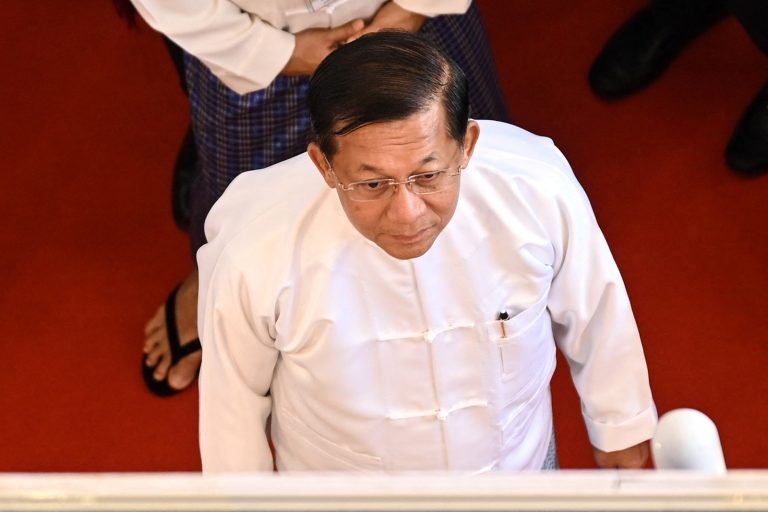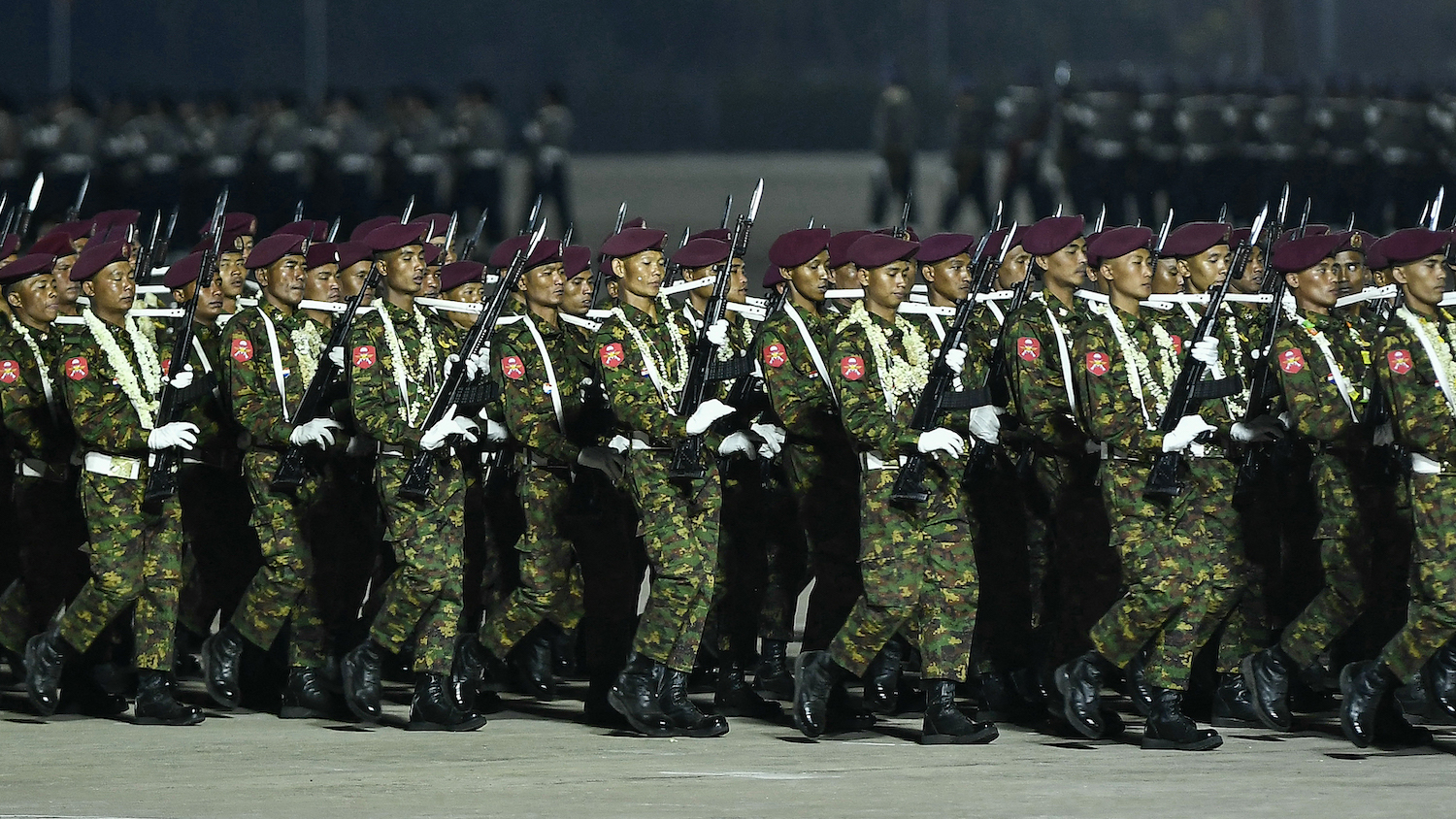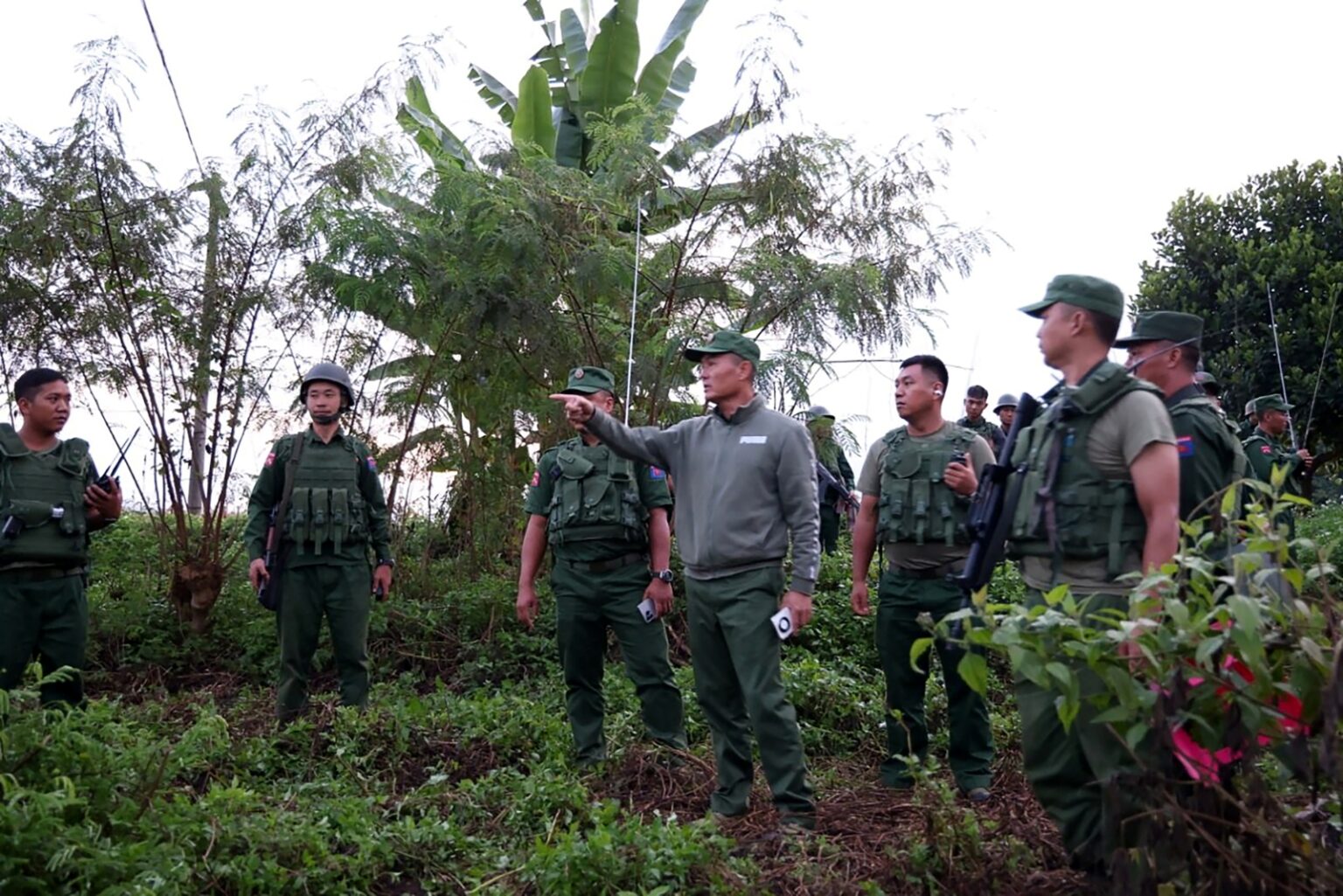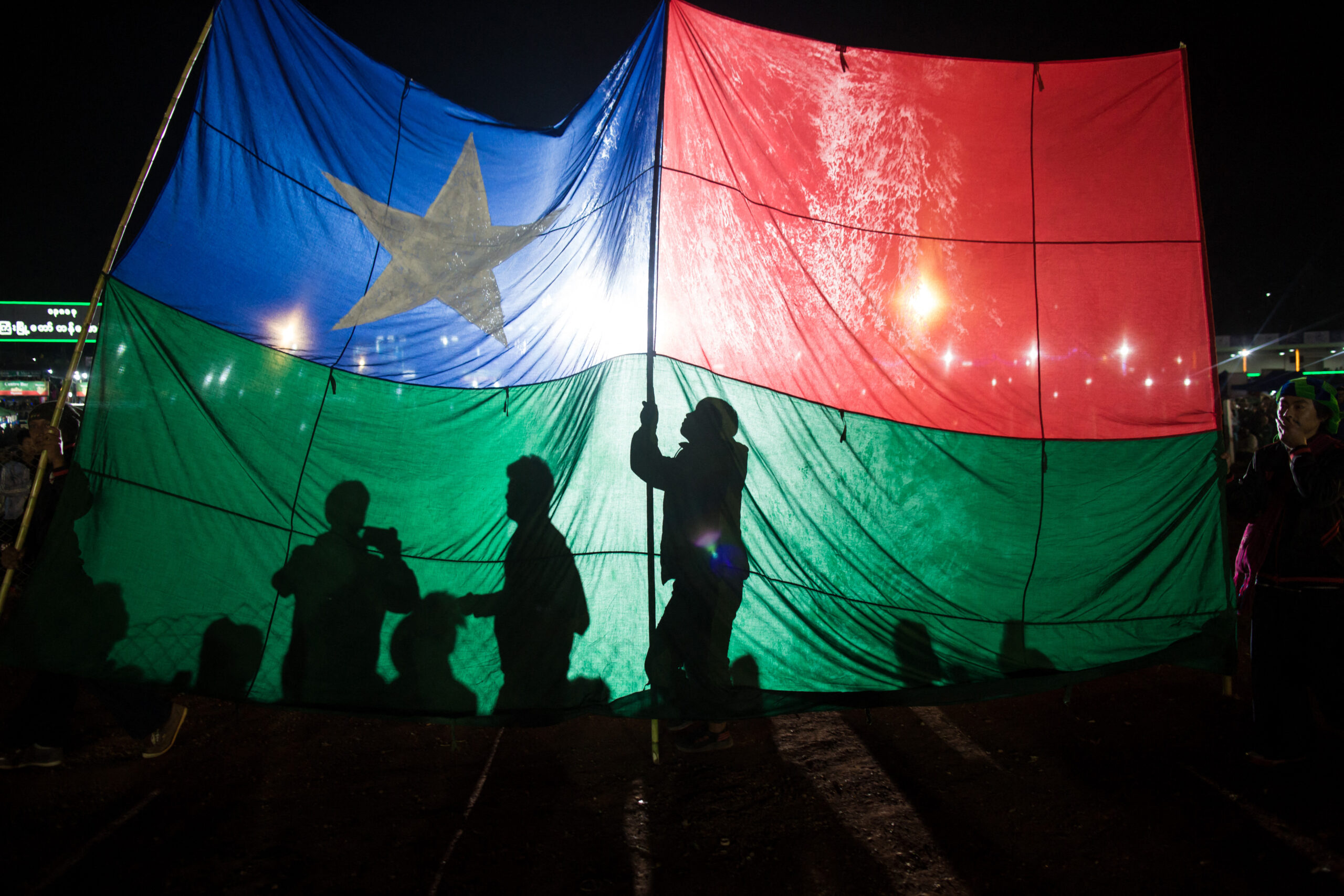It beggars belief that the RCSS could have relocated hundreds of troops across Shan State without the knowledge and support of the military.
When the national ceasefire agreement was being signed in Nay Pyi Taw last October, against a backdrop of great fanfare, the Tatmadaw was in the second week of an offensive against the Shan State Progressive Party. The Tatmadaw launched the operation after the armed group refused to vacate a long-held, strategic river port at Tar San Pu village in Kyethi Township. The fighting continued for a month until a ceasefire was called after the November election. More than 1,400 people remain displaced.

Jared Downing / Frontier
Support more independent journalism like this. Sign up to be a Frontier member.
It is reasonable to assume that the degree to which the conflict escalated would not have been possible without the involvement of the Tatmadaw, which has been accused of helping the RCSS fight the TNLA.
The Tatmadaw has denied intervening in the conflict but as analyst Anthony Davis wrote in the Bangkok Post recently, it beggared belief that the RCSS could have relocated hundreds of troops from one side of Shan State to the other without the knowledge and support of the military.
In light of this, it is galling the unelected military bloc joined elected MPs in parliament to call for an immediate ceasefire. Equally galling was a military MP’s description of the TNLA as “expansionist” so soon after the Tatmadaw’s offensive on positions held by the SSPP.
Meanwhile, the government is reported to be involved in an eleventh hour attempt to persuade more armed groups to sign the ceasefire before President U Thein Sein leaves office on March 31. Perhaps there has been a time in the past four months when some armed group leaders who did not sign in October might have been prepared to reconsider. Does the government really believe there are any such leaders left now?







